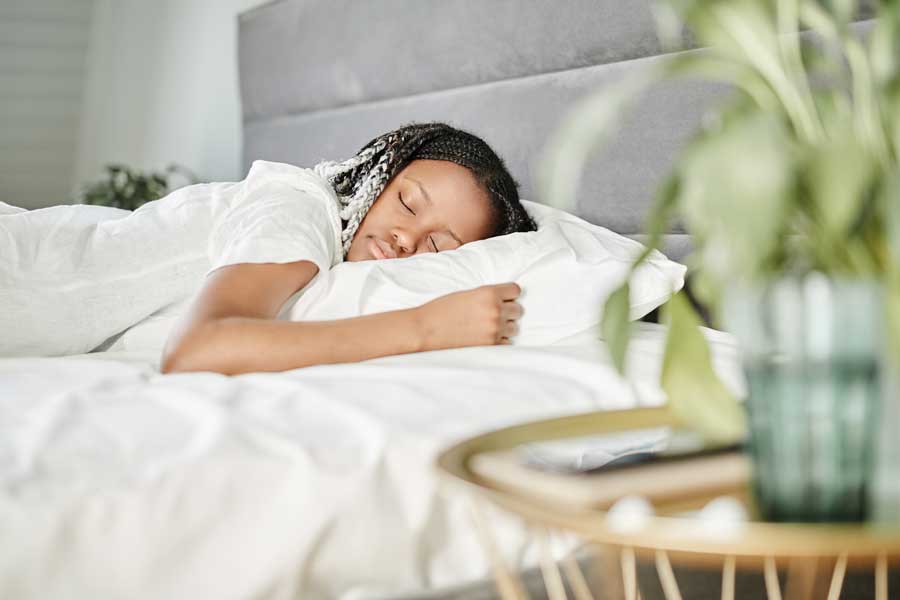One of the most important ways to practice self-care and embrace a healthy lifestyle is to get some good sleep each night.
A big factor in being able to achieve this goal is finding your optimal sleep temperature. When it’s hot and unbearable outside, don’t let it affect the quality of your sleep inside.
Find out how to zone in on the right sleep temperature to help get the much-needed rest your mind and body need.
Ideal Sleep Temperature
For most people, the best temperature for a good night’s sleep is 65 degrees Fahrenheit.
Of course, based on personal comfort levels and whether your core body temperature runs hotter or colder, this median temperature can be adjusted to suit individual comfort preferences.
- With that said, a temperature that falls somewhere between 60 to 72 degrees Fahrenheit is ideal for the best night’s sleep.
Temperature Control Options for Good Sleep
On hot summer nights, leaving the windows open to enjoy the cooler night breeze seems like a good idea for restful sleep. However, when you leave the windows open, you’re also opening up your home to excess humidity that will circulate throughout your home.
One function of air conditioning is to decrease humidity levels, so if you inadvertently increase these levels, your AC will work harder to lower them inside your home.
Another option is running either a ceiling or portable fan. The problem with fans is that sometime in the middle of the night, you’ll either still be too hot or get icy cold. There’s no chance of evenly regulating fans for an ideal sleeping temperature.
Why Temperature Matters for Sleeping
Our bodies have what’s known as a circadian rhythm, which regulates core body temperature. At night, the circadian rhythm drops, working in tandem with release of the brain’s natural melatonin.
A cooler environment, or optimal sleep temperature, works well with and helps lower our body’s core body temperature, in addition to increasing melatonin levels. All of these things working together mean better, more restful sleep for you.
When it’s either too hot or too cold, it disrupts and awakens you several times during the night, if you can fall asleep at all.
If it’s too hot, the temperature disrupts the deep restorative slow wave and REM sleep needed to wake up feeling rested and refreshed. A hot and humid sleep environment also throws off the body’s ability to regulate its own temperature, making for an uncomfortable and fitful attempt at sleeping through the night.
Although colder temperatures don’t disrupt sleep patterns like hot conditions do, you’ll still be uncomfortable and possibly so much so that you’ll find it difficult to stay asleep through the night.
Effects of Poor Sleep
When you don’t get enough sleep, you wake up in the morning feeling more tired than refreshed.
It affects your mood, ability to think clearly, and you’ll literally have one of those “woke up on the wrong side of the bed” kind of days.
Making Things Comfortable
Aside from temperature, your comfort is another important element of a good night’s sleep.
Make sure your mattress, pillows and bedding are helping – not hurting – your ability to really get comfortable before drifting off to sleep.
A soothing soak in the tub, cup of warm decaffeinated tea and shutting off electronic devices at least an hour before bed all help lull you into a deep REM state of restful sleep.
Conclusion
While comfortable temperatures in your home are important no matter what time of day or night, it’s especially important to help you get a good night’s sleep.
To make sure your HVAC system is running efficiently and helping hold your optimal sleep temperature steady, call Dale HCS for an inspection, tune-up, and cleaning.

